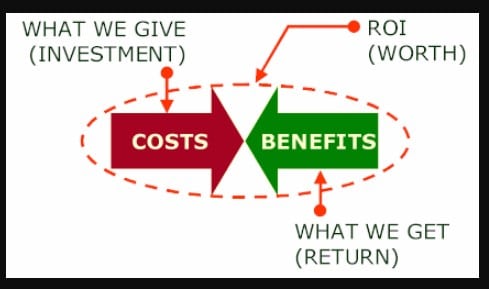The ROI of CRM: How to Measure Success
The ROI of CRM: How to Measure Success – In today’s highly competitive business environment, it is essential to focus on customer relationship management (CRM) to stay ahead of the game. But how do you know if your CRM strategy is working? The answer lies in measuring the return on investment (ROI) of your CRM efforts. In this article, we will explore the various ways to measure the ROI of CRM and how it can help your business succeed.
Understanding the Importance of CRM ROI
Before we dive into measuring the ROI of CRM, let’s first understand why it is important. Simply put, measuring the ROI of CRM allows you to determine if your CRM strategy is delivering the desired results. By tracking the ROI, you can identify areas where you need to make changes to improve the effectiveness of your CRM efforts. It also helps you allocate resources more efficiently and make informed decisions on where to invest your time and money.
- Defining CRM ROI
CRM ROI is a metric that measures the monetary value of the benefits gained from a CRM investment compared to the cost of that investment. It is a way to determine if the investment in CRM is worthwhile and provides value to the organization.
- Factors Affecting CRM ROI
Several factors can impact the ROI of CRM. The most significant ones include:
- Customer Acquisition Costs
The cost of acquiring new customers can significantly impact the ROI of CRM. If the cost of acquiring a new customer is high, it can take longer to recoup the investment made in CRM.
- Customer Retention Rates
The retention rate of customers is another crucial factor that affects the ROI of CRM. A higher customer retention rate means that customers are more likely to stick with the brand, leading to increased revenue and lower customer acquisition costs.
- Conversion Rates
Conversion rates refer to the percentage of potential customers that turn into actual customers. Higher conversion rates indicate that your CRM efforts are paying off and are delivering the desired results.
- Measuring CRM ROI
Measuring the ROI of CRM is not an easy task. It requires a detailed analysis of the costs and benefits associated with CRM. Here are some of the ways to measure the ROI of CRM:
- Financial Metrics
The most common way to measure the ROI of CRM is through financial metrics such as revenue, profits, and cost savings. By tracking these metrics, you can determine if the investment in CRM is paying off.
- Customer Metrics
Measuring customer metrics such as customer satisfaction, retention rates, and customer lifetime value can also help determine the ROI of CRM. These metrics provide insights into how your CRM efforts are impacting your customers and whether they are delivering the desired results.
- Operational Metrics
Operational metrics such as the number of leads generated, sales pipeline, and sales cycle time can also provide valuable insights into the effectiveness of your CRM efforts.
- Improving CRM ROI
If you find that the ROI of your CRM efforts is not up to par, there are several ways to improve it. Here are some tips:
Align Your CRM Strategy with Business Goals
Ensure that your CRM strategy aligns with your overall business goals. This will help you focus your efforts on areas that will deliver the most value to the organization.
- Invest in the Right Tools
Invest in the right tools and technologies to support your CRM efforts. This can include CRM software, data analytics tools, and customer feedback systems.
- Train Your Staff
Ensure that your staff is well-trained in using the CRM tools and technologies. This will help them use the tools more effectively and drive better results.
Conclusion
Measuring the ROI of CRM is critical to the success of any organization. It provides valuable insights into the effectiveness of your CRM efforts and helps you make informed decisions on where to invest your time and money. By following the tips outlined in this article, you can improve your CRM ROI and achieve greater success in your business.
FAQs
What is CRM?
CRM stands for Customer Relationship Management. It refers to the strategies and technologies used by companies to manage and analyze interactions with customers and potential customers.
Why is measuring CRM ROI important?
Measuring the ROI of CRM allows companies to determine if their CRM strategy is delivering the desired results. It helps to identify areas for improvement and to allocate resources more efficiently.
What factors affect CRM ROI?
Customer acquisition costs, customer retention rates, and conversion rates are some of the factors that can impact the ROI of CRM.
How can you measure CRM ROI?
You can measure CRM ROI through financial metrics, customer metrics, and operational metrics.
How can you improve CRM ROI?
You can improve CRM ROI by aligning your CRM strategy with business goals, investing in the right tools and technologies, and training your staff in using CRM tools effectively.
